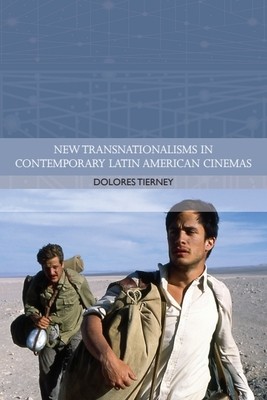
- We will send in 10–14 business days.
- Author: Dolores Tierney
- Publisher: Edinburgh University Press
- ISBN-10: 1474431135
- ISBN-13: 9781474431132
- Format: 15.2 x 22.9 x 1.5 cm, softcover
- Language: English
- SAVE -10% with code: EXTRA
New Transnationalisms in Contemporary Latin American Cinemas (e-book) (used book) | bookbook.eu
Reviews
Description
In the late 1990s and early 2000s Latin American films like Amores perros, Y tu mamá también and Cidade de Deus enjoyed an unprecedented level of critical and commercial success in the world market. Benefitting from external financial and/or creative input, these films were considered examples of transnational cinema. Through a textual analysis of six filmmakers (Alejandro González Iñárritu, Alfonso Cuarón, Guillermo del Toro, Fernando Meirelles, Walter Salles and Juan José Campanella), this book examines these transnational films and the subsequent wave of commercially successful 'deterritorialised' films by the same directors. It argues that although films produced within the structures of the United States film industry may have been commercially successful, they are not necessarily apolitical or totally divorced from key notions of national or continental identity. Bringing a new perspective to the films of Latin America's transnational auteurs, this is a major contribution towards understanding how different genres function across different cultures.
EXTRA 10 % discount with code: EXTRA
The promotion ends in 8d.17:32:59
The discount code is valid when purchasing from 10 €. Discounts do not stack.
- Author: Dolores Tierney
- Publisher: Edinburgh University Press
- ISBN-10: 1474431135
- ISBN-13: 9781474431132
- Format: 15.2 x 22.9 x 1.5 cm, softcover
- Language: English English
In the late 1990s and early 2000s Latin American films like Amores perros, Y tu mamá también and Cidade de Deus enjoyed an unprecedented level of critical and commercial success in the world market. Benefitting from external financial and/or creative input, these films were considered examples of transnational cinema. Through a textual analysis of six filmmakers (Alejandro González Iñárritu, Alfonso Cuarón, Guillermo del Toro, Fernando Meirelles, Walter Salles and Juan José Campanella), this book examines these transnational films and the subsequent wave of commercially successful 'deterritorialised' films by the same directors. It argues that although films produced within the structures of the United States film industry may have been commercially successful, they are not necessarily apolitical or totally divorced from key notions of national or continental identity. Bringing a new perspective to the films of Latin America's transnational auteurs, this is a major contribution towards understanding how different genres function across different cultures.


Reviews